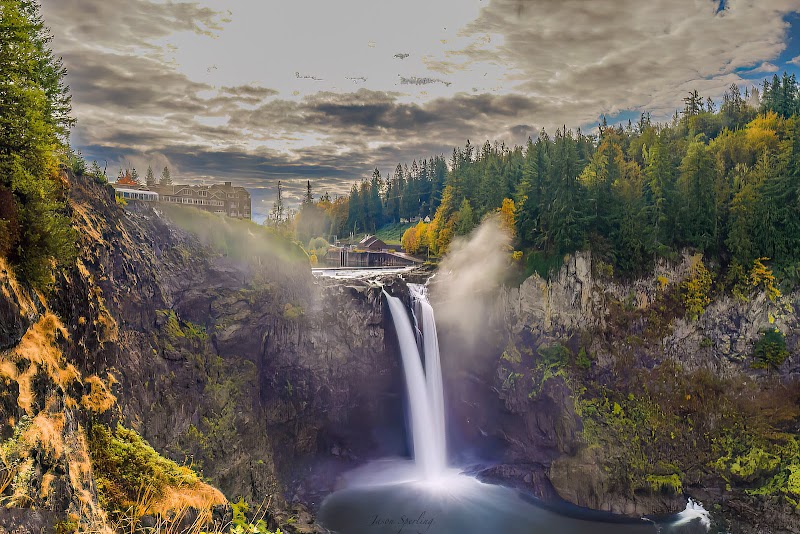
Navigating Transportation Near Seattle: Your Practical Guide for an Adventurous Arrival
Discover how to navigate transportation near Seattle with ease, from the speedy Link Light Rail to scenic ferry rides. This guide offers practical insights to help visitors move seamlessly between urban spots and outdoor adventures, making every trip efficient and exciting.
Utilize the Link Light Rail for Airport Transfers
Skip the traffic by choosing the Link Light Rail for swift, reliable transit between Sea-Tac Airport and downtown Seattle.
Plan Around Peak Transit Hours
Avoid rush hours (7-9 AM, 4-6 PM) when buses and trains can get crowded, especially on weekdays.
Bring a Transit Card for Convenience
Pick up an ORCA card to save on fares and make transfers easier across buses, trains, and ferries.
Consider Weather When Choosing Transport Modes
Seattle’s rain may favor covered transport like light rail or buses over biking or scooter rentals on wet days.
Navigating Transportation Near Seattle: Your Practical Guide for an Adventurous Arrival
Seattle’s pulse beats fastest when you unlock its transport arteries—whether by land, water, or sky. Transportation near Seattle operates as the city’s lifeblood, linking visitors effortlessly to its urban core, outdoor escapes, and the broader Puget Sound region. From the sleek Sound Transit light rail weaving underneath the city streets to ferries cutting through shimmering waters, Seattle’s transit options are vast and designed to keep the adventure flowing.
At the heart of Seattle’s transit network stands the Link Light Rail, providing a seamless ride between downtown and Sea-Tac Airport. This modern system eliminates parking stress and throttles down travel time, placing neighborhoods, outdoor trails, and cultural hubs comfortably within reach. Complementing rail, King County Metro’s bus network is expansive, affordable, and punctual, connecting key outdoor destinations like Discovery Park and Green Lake.
For those who prefer the open road, rideshare services and rental scooters provide flexible solutions for short trips or neighborhood explorations. Meanwhile, ferries crossing from downtown Seattle to Bainbridge Island or Bremerton offer the kind of transport infused with the region’s coastal charm—witnessing gulls diving and salt spray daring you close.
Parking can be tight within the city, but park-and-ride facilities around major transit hubs encourage leaving a car behind and diving into public options. Bicycle lanes and rental bikes expand your reach with the added thrill of wind and terrain, making each neighborhood a gateway to new adventures.
Optimizing transportation around Seattle means knowing the best routes, timings, and modes for your desired destinations. Whether you chase mountain views in the Cascades or stroll the shifting shores of Puget Sound, mastering Seattle's transport unlocks the freedom to explore its fiercely individual landscape on your terms.
Focus on Keywords
Seattle transportation offers a diverse range of options: Link Light Rail, King County Metro buses, Seattle ferries, Sea-Tac Airport transit, rideshare services, bicycle and scooter rentals, park-and-ride locations, and multi-modal transit. Keywords like "Seattle public transit," "Seattle transportation options," "getting around Seattle," and "Seattle airport shuttle" capture the city’s emphasis on sustainable, convenient travel. Bike lanes, ferry routes, and transit maps further enhance visitor experience, supporting eco-conscious and adventure-bound travelers seeking efficient, scenic transport solutions in Seattle and surrounding areas.
Nearby Trips
All Adventures
Boat Charters
Water Activities
Adventures near Seattle, Washington
Discover the unique and memorable adventures that make Seattle, Washington special.
Frequently Asked Questions
What is the most convenient way to get from Sea-Tac Airport to downtown Seattle?
The Link Light Rail provides the fastest and most direct route, operating frequently throughout the day. It requires no transfers and avoids city traffic, making it ideal for travelers.
Are bikes allowed on Seattle’s public transit systems?
Yes, King County Metro buses and Link Light Rail allow bikes, though peak hours may restrict access. Ferries also have bike racks to accommodate cyclists exploring regional destinations.
How do ferries fit into Seattle’s transportation options?
Ferries serve as vital connectors across Puget Sound, linking Seattle with Bainbridge Island, Bremerton, and other points. They offer scenic commutes with opportunities to spot marine wildlife and enjoy crisp salt air.
Is parking available at transit stations for park-and-ride?
Yes, many transit hubs like Tukwila and Northgate provide park-and-ride lots, encouraging commuters to park vehicles and continue their trips via transit.
What local apps help with navigating Seattle’s transit?
Transit and OneBusAway are popular apps offering real-time tracking, trip planning, and alerts for buses, trains, and ferries in Seattle.
Are there any lesser-known transit routes or stops useful for outdoor excursions?
Yes. For example, Metro Route 24 connects to Discovery Park with stops closer to trailheads, and certain ferry routes provide unique access to hiking and kayaking spots off the beaten path.
Recommended Gear
ORCA Card
Preloaded transit card for smooth transfers across buses, trains, and ferries.
Waterproof Jacket
Protects you from Seattle’s frequent rain, ensuring comfort during outdoor commutes.
Comfortable Walking Shoes
Essential for navigating terminals, stations, and city streets with ease.
Daypack or Backpack
Carry water, snacks, and transit maps or devices for a hassle-free travel day.
Local Insights
Hidden Gems
- "Discovery Park Loop Trail access via Metro Route 24"
- "Hidden beach access points along Alki Ferry route"
- "Quiet spots near the Ballard Locks accessible by bus"
Wildlife
- "Bald eagles fishing near the Lake Union waterfront"
- "Harbor seals frequently spotted from ferry decks"
- "Urban coyote sightings in forested park corridors"
History
"Seattle's transportation network evolved alongside its maritime and timber industries, with ferries and railroads historically fueling expansion and outdoor accessibility."